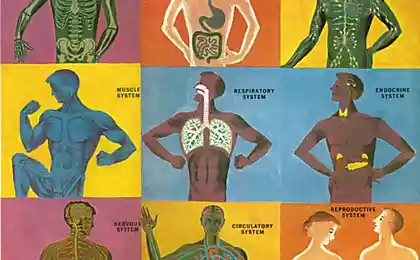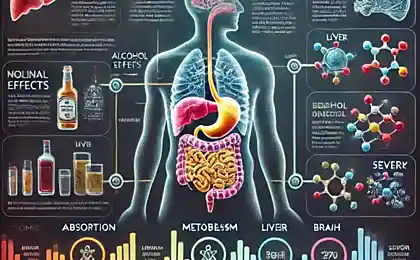447
Why Muslims should not drink alcohol Shamil Rifatovich Alyautdinov, an Islamic theologian, talks about important things.
Many people associate the word Islam with a ban on alcohol. Indeed, Islam is perhaps the only religion in the world where it is actively proclaimed. alcoholism and other intoxicating substances and products.

According to the ancient Russian chronicles, it was this ban that prevented Prince Vladimir Svyatoslavovich from choosing Islam as a religion for his people, for: “Russia is a joy to drink: we cannot be without it.”
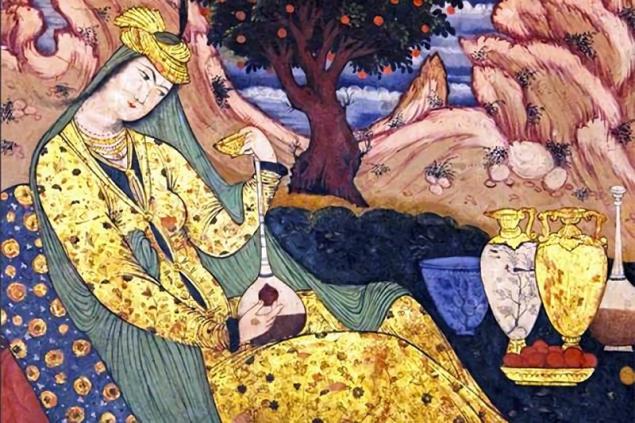
Is it forbidden for Muslims to drink alcohol, or is it permissible? After all, in the immortal poetry of Omar Khayyam, for example, there are many enthusiastic lines about wine. And today, on the streets of our cities, you can often see immigrants from Central Asia with a bottle of strong beer.
Before the adoption of Islam, the inhabitants of the Arabian Peninsula actively consumed alcoholic beverages. Since there was little water there and it was often unfit for drinking due to various impurities and salts, people quenched their thirst mainly with wine and date tincture.
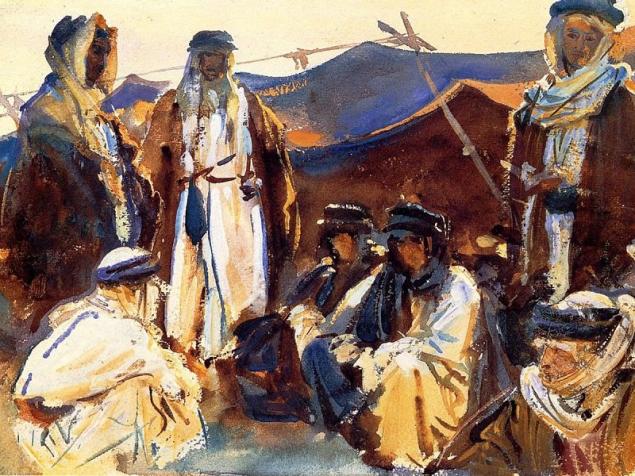
These drinks had a weak strength, but in hot climates they began to ferment, which added to them degrees and led over time to mass alcohol dependence. Although at first Islam did not imply giving up alcohol, the Prophet Muhammad, seeing the devastating effects of drinking, decided to introduce Prohibition.
There are five main reasons why you should not drink alcohol.
Banning alcohol
In the newly formed Islamic community, overcoming drunkenness did not come immediately. Even after converting to Islam, many of the Prophet’s companions continued to drink and feast.
Therefore, the rejection of drunkenness was introduced gradually. The first verse was revealed, which referred to sin and “some benefit of drinking.”
“They ask you about wine and gambling. Say, ‘There is a great sin in them, but there is benefit for you, even if there is more sin in them than good.’ (Quran 2:219)
Then there is a verse in which believers are warned not to be drunk in prayer.
“O those who believe. Do not approach prayer when you are drunk until you understand what you are saying. – Surah 4.
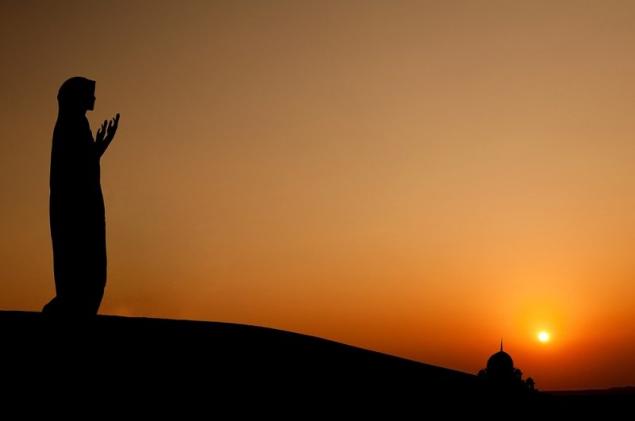
DepositPhotos
And finally, it was clearly stated that alcohol, along with gambling and divination, is the work of Satan.
“O you who believe. Everything that drunkens (and poisons) the mind, gambling, and stones (altars, altars and places of prayer), and lots on arrows. All this is an abomination that Satan has invented. So refrain from these temptations, that you may have happiness and success (Quran 5:90).
A superficial analysis of the texts of these verses leads to the idea that it is not about the absolute prohibition of alcohol, but only about the recommendation to “stay away” in order to have success in life and business.
At the same time, if a reasonable Muslim carefully reads the text, he will understand that they are talking about a rather tough choice - either alcohol or prayer and staying in it with Allah.
“Of palm fruits and vineyards you find good food for yourself, and a drink that is intoxicating; here is a true sign for those who understand” (16:67).
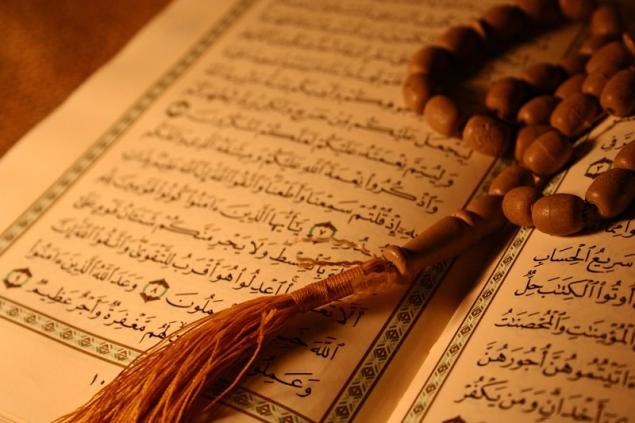
In history, this verse has been interpreted differently. Many orthodox theologians have commented on it in the sense that the same gifts of nature can be both useful to man and harmful to him.
Some Sufis and liberal interpreters explained the content of this verse as an opportunity for a certain relaxation in the use of alcohol for spiritually advanced individuals and simply those who have a head always in place.
To denote alcohol, and more recently also drugs and other intoxicating drugs, the Muslim Shariah uses the term “hamar”, derived from the Arabic root “hammar”, meaning something like “to cover with a veil, to fog”.
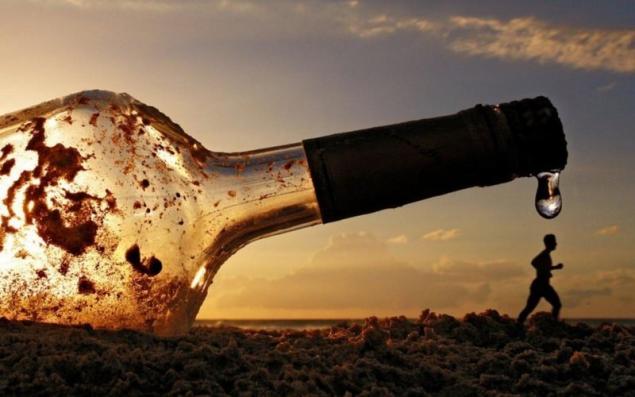
Meanwhile, the word “hamar” meant a drink obtained from grape or fruit juices by fermentation. It turned out that if the drink was made in a different way, then it was possible to use it.
Thus, the number of forbidden beverages at first did not include beer and alcohol obtained in 860 by an outstanding Persian doctor al-Razi, which was designated as “al-kohl” (alcohol), which in Arabic means “medication”, or “healing remedy”.
In the XIX century, in the era of modernization and active contacts with the West, alcoholic beverages have a new meaning - they have become a symbol of progress. The sultans drank champagne (though at first only at receptions attended by European ambassadors). Following the court, this fashion spread to all the upper classes of Ottoman society.
However, most of all in the Ottoman Empire loved crayfish - infused on anise strong (40-50 degrees) grape drink. It was cheaper than hard liquors from Europe and did not look as obvious a foreign borrowing as beer.
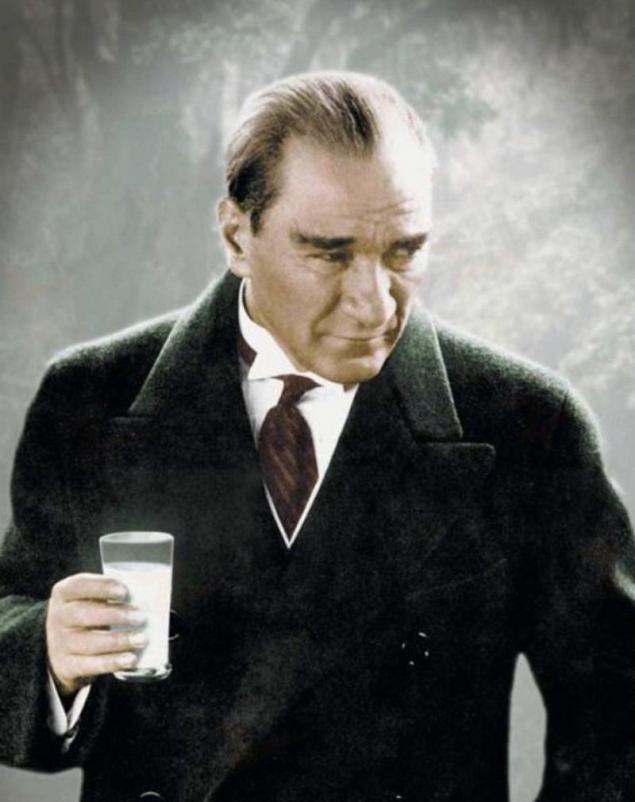
Its use also clearly did not contradict the prohibition of the Koran: unlike wine, crayfish is obtained not from grape juice, but from squeezing. Raki was also preferred by the founder of the Turkish Republic Mustafa Kemal Atatürk.
The sale of alcohol is banned in Saudi Arabia. In Pakistan and Iran, it can only be purchased by non-Muslims and only upon presentation of a religious document.
In Saudi Arabia, about two thousand beheading sentences are handed down each year, which are carried out in public. The majority of those sentenced are those convicted of adultery or of three times violating the prohibition of alcohol in the Hadith of Abu Dawud.
The Prophet said, If they drink wine, beat them with a whip. If they drink again, cut them out again. But if they drink again, kill them (Abu Dawud 38:4467).
Until recently, alcohol lovers felt freer in Turkey. In 1926, Muslims were allowed to sell and drink alcohol. However, the Turks did not become a heavily drinking nation: in 2010, the country’s per capita alcohol consumption was the lowest in Europe (one and a half liters per year).
In 2012, a law was passed banning the sale of liquor for bottling, and after that, parliament banned the sale of alcohol at night, as well as at a distance of 100 meters from schools and mosques. But excise taxes became the main tool of the government: by 2010, the cost of crayfish had quadrupled, and beer had increased eight times.
Iran in the twentieth century also followed the path of the growing popularity of alcohol. After the Islamic Revolution of 1979 and the subsequent ban on alcohol, Iranians returned to “secret drinking”: 80 million liters of alcohol are illegally sold in the country every year.
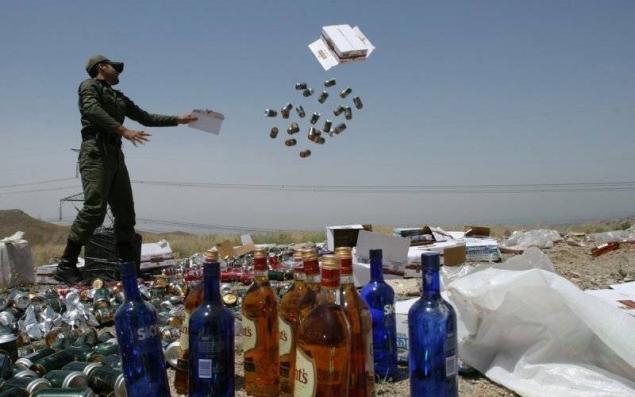
Iranian authorities estimate the number of people with alcohol problems at 200,000. The Ministry of Health of the country plans to open 150 treatment centers for alcoholics. And this despite the fact that violation of anti-alcohol norms in Iran can be punished by lashes, prison and even execution.
Can I or can't I? There is no strict unity on this issue among modern theologians. Thus, the well-known Sheikh Dr. Yusuf al-Qaradawi, on the basis of the principle “that sin is big, then sin is small,” drew a fatwa about the prohibition of non-alcoholic beer, citing the fact that in minimal quantities there is alcohol in it. But this drink is freely sold in orthodox Saudi Arabia and Iran.
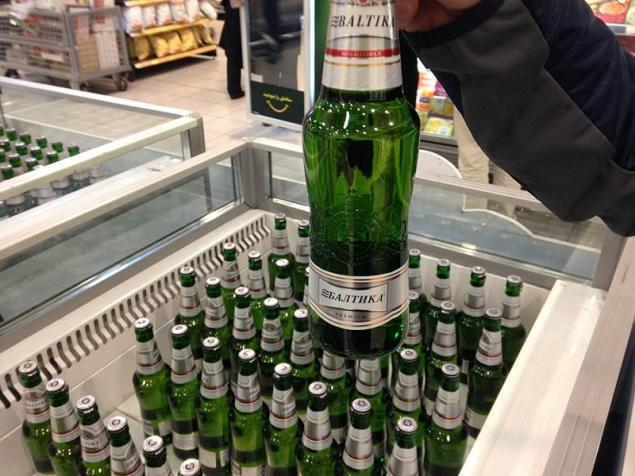
In 2008, the Islamic theologian Yusuf al-Qaradawi issued a fatwa that allowed limited drinking.
Al-Qaradawi explained this by the fact that the alcohol content in drinks less than 0.5% is quite acceptable for believers, since it does not lead to intoxication, therefore, it cannot contradict the dogmas of Islam.
However, most of his colleagues did not support him. They agree that alcohol can lead to the commission of sin and is one of the tools of Satan’s influence on man.
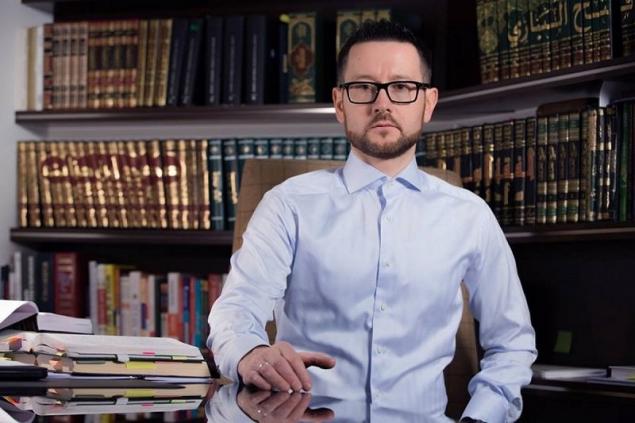
Shamil Rifatovich Alyautdiinov, an Islamic theologian and preacher, the author of numerous books on Islamic topics, believes that alcohol can never be allowed for a Muslim. It is the key to all kinds of evil, destroying the human brain and personality, leading eventually to early death.
It can be argued that the main real historical consequence of the introduction of a ban on alcohol in Islam was its exclusion from the sphere of open publicity. Anyway, today alcohol is quite openly consumed in countries such as Turkey, Syria, Jordan, Lebanon.
True, there are hardly any really drunk people here. Drinkers do this away from prying eyes and consume alcohol in fairly moderate amounts.
Throughout most of history ban on alcohol in Islam It was planted from above – from the authorities and theologians, and people perceived as an uncomfortable rule that must be circumvented with minimal losses for their own wallet, health and conscience.
Now, especially in developed countries, Muslims often determine their religious identity and seek answers to questions about how the faithful should live. The complete renunciation of alcohol means here a certain step on the path of individual spiritual growth, which is a good thing for any religion.
Mankind owes Muslim culture a number of ingenious inventions. We have collected the greatest discoveries and inventions of Muslims in a huge list and invite you to familiarize yourself with it.
One of the most famous healers of antiquity, Ibn Sina, known in the West as Avicenna, gave the world more than 450 works in 29 fields of science. He cured many as a doctor of the Samarkand emirs, and claimed that any disease can be defeated. How to do this, will tell the editor "Site".

According to the ancient Russian chronicles, it was this ban that prevented Prince Vladimir Svyatoslavovich from choosing Islam as a religion for his people, for: “Russia is a joy to drink: we cannot be without it.”

Is it forbidden for Muslims to drink alcohol, or is it permissible? After all, in the immortal poetry of Omar Khayyam, for example, there are many enthusiastic lines about wine. And today, on the streets of our cities, you can often see immigrants from Central Asia with a bottle of strong beer.
Before the adoption of Islam, the inhabitants of the Arabian Peninsula actively consumed alcoholic beverages. Since there was little water there and it was often unfit for drinking due to various impurities and salts, people quenched their thirst mainly with wine and date tincture.

These drinks had a weak strength, but in hot climates they began to ferment, which added to them degrees and led over time to mass alcohol dependence. Although at first Islam did not imply giving up alcohol, the Prophet Muhammad, seeing the devastating effects of drinking, decided to introduce Prohibition.
There are five main reasons why you should not drink alcohol.
Banning alcohol
- Prayer should not be performed in a drunken state, and believers should turn to Allah five times a day.
- A fear of addiction. Muhammad said there would be no benefit from what was forbidden. After drinking even one drink, a person may want more.
- By clouding the mind, alcohol makes it impossible to distinguish between righteousness and sin.
- Drinking alcohol is a bad example for children. The older generation should serve as a role model for the younger generation.
- Alcohol reduces self-control, makes you forget about the Quran and the commandments of Allah, and for believers this is unacceptable.
In the newly formed Islamic community, overcoming drunkenness did not come immediately. Even after converting to Islam, many of the Prophet’s companions continued to drink and feast.
Therefore, the rejection of drunkenness was introduced gradually. The first verse was revealed, which referred to sin and “some benefit of drinking.”
“They ask you about wine and gambling. Say, ‘There is a great sin in them, but there is benefit for you, even if there is more sin in them than good.’ (Quran 2:219)
Then there is a verse in which believers are warned not to be drunk in prayer.
“O those who believe. Do not approach prayer when you are drunk until you understand what you are saying. – Surah 4.

DepositPhotos
And finally, it was clearly stated that alcohol, along with gambling and divination, is the work of Satan.
“O you who believe. Everything that drunkens (and poisons) the mind, gambling, and stones (altars, altars and places of prayer), and lots on arrows. All this is an abomination that Satan has invented. So refrain from these temptations, that you may have happiness and success (Quran 5:90).
A superficial analysis of the texts of these verses leads to the idea that it is not about the absolute prohibition of alcohol, but only about the recommendation to “stay away” in order to have success in life and business.
At the same time, if a reasonable Muslim carefully reads the text, he will understand that they are talking about a rather tough choice - either alcohol or prayer and staying in it with Allah.
“Of palm fruits and vineyards you find good food for yourself, and a drink that is intoxicating; here is a true sign for those who understand” (16:67).

In history, this verse has been interpreted differently. Many orthodox theologians have commented on it in the sense that the same gifts of nature can be both useful to man and harmful to him.
Some Sufis and liberal interpreters explained the content of this verse as an opportunity for a certain relaxation in the use of alcohol for spiritually advanced individuals and simply those who have a head always in place.
To denote alcohol, and more recently also drugs and other intoxicating drugs, the Muslim Shariah uses the term “hamar”, derived from the Arabic root “hammar”, meaning something like “to cover with a veil, to fog”.

Meanwhile, the word “hamar” meant a drink obtained from grape or fruit juices by fermentation. It turned out that if the drink was made in a different way, then it was possible to use it.
Thus, the number of forbidden beverages at first did not include beer and alcohol obtained in 860 by an outstanding Persian doctor al-Razi, which was designated as “al-kohl” (alcohol), which in Arabic means “medication”, or “healing remedy”.
In the XIX century, in the era of modernization and active contacts with the West, alcoholic beverages have a new meaning - they have become a symbol of progress. The sultans drank champagne (though at first only at receptions attended by European ambassadors). Following the court, this fashion spread to all the upper classes of Ottoman society.
However, most of all in the Ottoman Empire loved crayfish - infused on anise strong (40-50 degrees) grape drink. It was cheaper than hard liquors from Europe and did not look as obvious a foreign borrowing as beer.

Its use also clearly did not contradict the prohibition of the Koran: unlike wine, crayfish is obtained not from grape juice, but from squeezing. Raki was also preferred by the founder of the Turkish Republic Mustafa Kemal Atatürk.
The sale of alcohol is banned in Saudi Arabia. In Pakistan and Iran, it can only be purchased by non-Muslims and only upon presentation of a religious document.
In Saudi Arabia, about two thousand beheading sentences are handed down each year, which are carried out in public. The majority of those sentenced are those convicted of adultery or of three times violating the prohibition of alcohol in the Hadith of Abu Dawud.
The Prophet said, If they drink wine, beat them with a whip. If they drink again, cut them out again. But if they drink again, kill them (Abu Dawud 38:4467).
Until recently, alcohol lovers felt freer in Turkey. In 1926, Muslims were allowed to sell and drink alcohol. However, the Turks did not become a heavily drinking nation: in 2010, the country’s per capita alcohol consumption was the lowest in Europe (one and a half liters per year).
In 2012, a law was passed banning the sale of liquor for bottling, and after that, parliament banned the sale of alcohol at night, as well as at a distance of 100 meters from schools and mosques. But excise taxes became the main tool of the government: by 2010, the cost of crayfish had quadrupled, and beer had increased eight times.
Iran in the twentieth century also followed the path of the growing popularity of alcohol. After the Islamic Revolution of 1979 and the subsequent ban on alcohol, Iranians returned to “secret drinking”: 80 million liters of alcohol are illegally sold in the country every year.

Iranian authorities estimate the number of people with alcohol problems at 200,000. The Ministry of Health of the country plans to open 150 treatment centers for alcoholics. And this despite the fact that violation of anti-alcohol norms in Iran can be punished by lashes, prison and even execution.
Can I or can't I? There is no strict unity on this issue among modern theologians. Thus, the well-known Sheikh Dr. Yusuf al-Qaradawi, on the basis of the principle “that sin is big, then sin is small,” drew a fatwa about the prohibition of non-alcoholic beer, citing the fact that in minimal quantities there is alcohol in it. But this drink is freely sold in orthodox Saudi Arabia and Iran.

In 2008, the Islamic theologian Yusuf al-Qaradawi issued a fatwa that allowed limited drinking.
Al-Qaradawi explained this by the fact that the alcohol content in drinks less than 0.5% is quite acceptable for believers, since it does not lead to intoxication, therefore, it cannot contradict the dogmas of Islam.
However, most of his colleagues did not support him. They agree that alcohol can lead to the commission of sin and is one of the tools of Satan’s influence on man.

Shamil Rifatovich Alyautdiinov, an Islamic theologian and preacher, the author of numerous books on Islamic topics, believes that alcohol can never be allowed for a Muslim. It is the key to all kinds of evil, destroying the human brain and personality, leading eventually to early death.
It can be argued that the main real historical consequence of the introduction of a ban on alcohol in Islam was its exclusion from the sphere of open publicity. Anyway, today alcohol is quite openly consumed in countries such as Turkey, Syria, Jordan, Lebanon.
True, there are hardly any really drunk people here. Drinkers do this away from prying eyes and consume alcohol in fairly moderate amounts.
Throughout most of history ban on alcohol in Islam It was planted from above – from the authorities and theologians, and people perceived as an uncomfortable rule that must be circumvented with minimal losses for their own wallet, health and conscience.
Now, especially in developed countries, Muslims often determine their religious identity and seek answers to questions about how the faithful should live. The complete renunciation of alcohol means here a certain step on the path of individual spiritual growth, which is a good thing for any religion.
Mankind owes Muslim culture a number of ingenious inventions. We have collected the greatest discoveries and inventions of Muslims in a huge list and invite you to familiarize yourself with it.
One of the most famous healers of antiquity, Ibn Sina, known in the West as Avicenna, gave the world more than 450 works in 29 fields of science. He cured many as a doctor of the Samarkand emirs, and claimed that any disease can be defeated. How to do this, will tell the editor "Site".
Depression is more of a friend than an enemy, because it helps fight inner demons.
The finger-twisting exercise
















